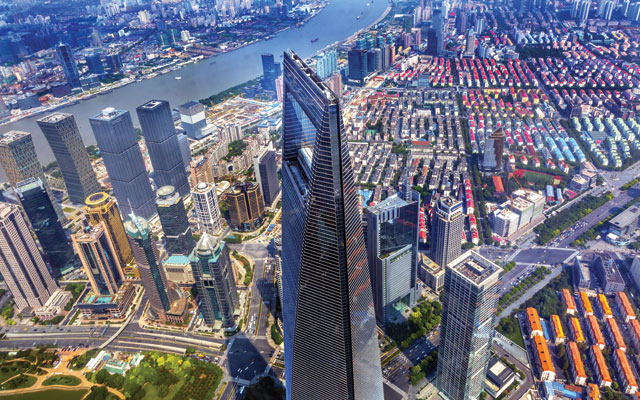Shanghai’s appeal for meetings fell sharply due to a law to regulate foreign NGOs, but measures have been put in place to rejuvenate the sector

It looks like Shanghai has turned the corner since China passed its Administration of Activities of Overseas Nongovernmental Organizations law – commonly referred to as the NGO law – in 2016, which was enforced at the start of 2017.

Initial reaction to the law saw associations in the US and other markets reviewing their China strategy, according to Vivian Zhang, director, MCI China (in charge of the group’s AMC and PCO business), who noted that MCI suffered a 20 to 30 per cent drop in international association meetings.
Fortunately, 2018 has started on a more optimistic note. She commented: “International association site inspections in Shanghai are starting again and we are seeing the planning of events from 2022 onwards. Perhaps the NGO law was not properly explained when it was implemented.
“As an international company, MCI can tap the resources of its US and other offices to help associations understand the law, on the need to have a local partner and be clear about what the local partner needs to do, the different documentation processes, China’s customs regulations, visa-entry requirements, etc.
“With different cultures and where cultures are very different, clear communication is very important,” she opined, adding that architecture, pharmaceutical, financial ICT (information and communications technology) association meetings are making up MCI’s top sectors.
Zhang noted that Shanghai’s business events authorities “have been doing a lot” in the last two years to beef up the city’s appeal.
Measures which have been put in place include the setting up of its conference service standard organisation programme; creating a list of recommended DMCs and PCOs on the Official Shanghai China Travel website; the Shanghai Municipal Tourism Administration (SMTA) launching a German language version of its website; expanding its Conference Ambassador programme to 110 representatives with the addition of hose in the fields of medicine, law and culture last year; and putting more effort into promoting the 144-hour or six-day visa-free policy.
A Shanghai tourism official said adoption of the visa policy has not been high since it was introduced in 2016 and the government wants more travellers to know about it, especially business events delegates. The spokesperson added that the tourism authority is working with the airlines, DMCs, China National Tourism Administration’s overseas offices and is also looking at developing an online service to facilitate large business events groups.
Visa requirements for international visitors from 51 countries or regions on transit was upgraded from 72 hours to 144 hours in 2016 and also expanded to cover entry and exit anywhere in the Shanghai-Jiangsu-Zhejiang region in 2016.
MCI’s Zhang added that SMTA has also introduced the Shanghai Travel e-Coupon Platform to provide e-vouchers to promote sightseeing and F&B in the city.
Patrick Chen, deputy director, International Tourism Promotion Department, SMTA, said he was confident international meetings posted positive growth in 2017, but they were not as high in 2016. Business events results for 2017 were not yet available at press time.
DMC Faces of China, which was set up in 2016 and which also provides PCO services, has been organising law and architecture association meetings.
CEO Cindy Zhang said that apart from content creation, services the DMC provides include online registration, room assignment, and logistics. It was appointed the PCO for a 1,600-delegate IT conference in April.
“Shanghai and our future are healthy. I foresee our company’s business growing by at least 20 per cent every year. Growth this year, compared to 2017, will increase more than 100 per cent,” she posited.










